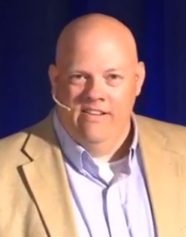A MESSAGE FROM THE REV. J.C. AUSTIN:
LIFELONG EDUCATION IS CRUCIAL
If I had kept a list of all the things that I’ve needed to know something about in the practice of ministry that I did NOT learn in seminary, it would be a pretty unusual list.
There are some obvious things that they really should teach in seminary, particularly around church finances. Believe it or not, it is not just possible to be ordained and installed as the pastor of a congregation with zero training in budgets, fundraising, balance sheets, or endowments; it is standard!
Then there are the things to a particular context you have to learn about that are essential but would never be taught in a seminary: when I served in New York City, I did a lot of research about the history and current practices of Wall Street; when I came to Bethlehem, I read about the history of the Moravians and Bethlehem Steel.
And then there are the crises that come up suddenly that have an impact on the world or the lives of people in the congregation or community. So in the aftermath of 9/11, I studied up on the rise of Islamic fundamentalism and the history of U.S. engagement in the Middle East. When the Great Recession happened, I learned about credit default swaps and collateralized debt obligations. And over the past 16 months, I’ve learned a great deal about virology, epidemiology, and immunology!
People sometimes complain about what “they don’t teach you in seminary,” but that is based on a false premise: that you should learn everything you need to know to practice ministry in three years of seminary. That is not only impossible, it’s never been the intention.
Presbyterians, in particular, stress that lifelong education is crucial not just for the practice of ministry, but of faith itself, which is why we put such an emphasis on adult education in congregations. For pastors, seminary provides the crucial basic elements required for ministry, but it is expected that you will spend the rest of your life continuing your theological and practical education for ministry.
That is why pastors are given a minimum of two weeks a year for study leave. Study leave is time away, but not time off (time off is vacation, which is different, but also important)! It is time dedicated to the kind of ongoing learning necessary to practice ministry well.
For the last week or so, I’ve been on study leave, and I’m grateful for both the time and the first chance in 16 months to not be thinking about how to respond to a crisis, but rather how we can discern together the best opportunities for our ministry together as a congregation emerging from the pandemic, and how we can pursue the most fruitful of those opportunities faithfully and well as we move forward into the future to which God is now calling us. I’m excited about what lies ahead for us!
Grace and Peace,
J.C.

